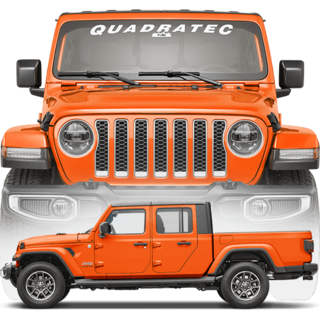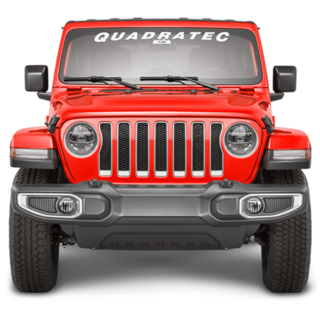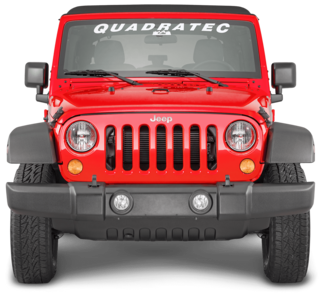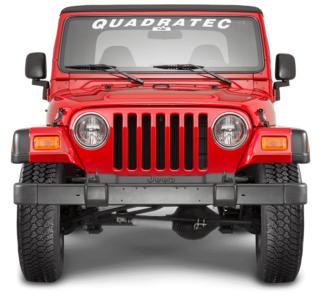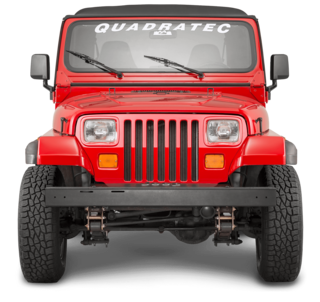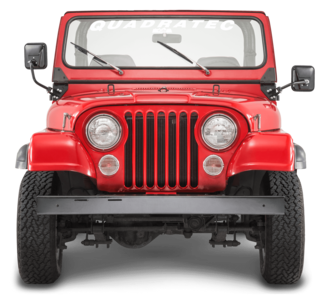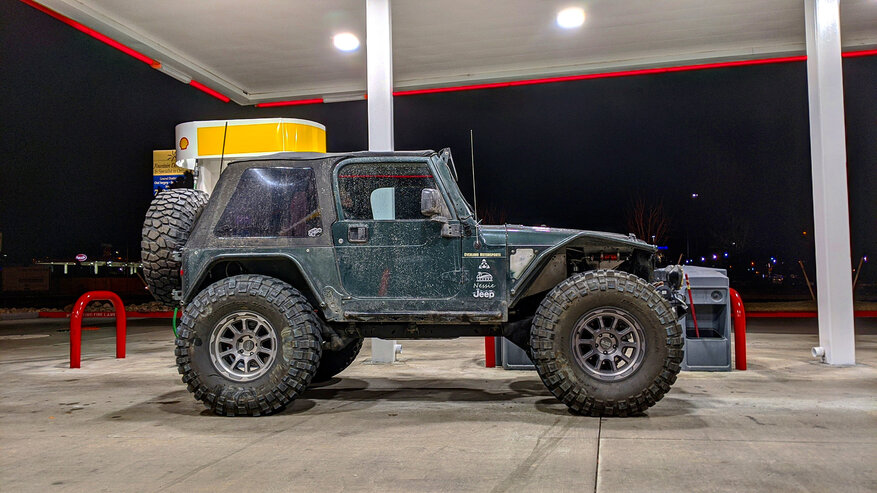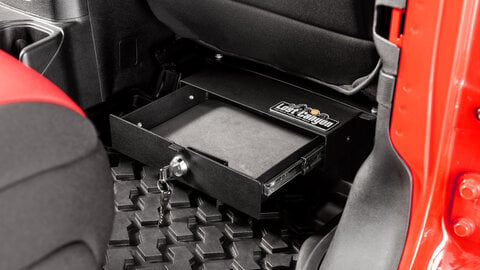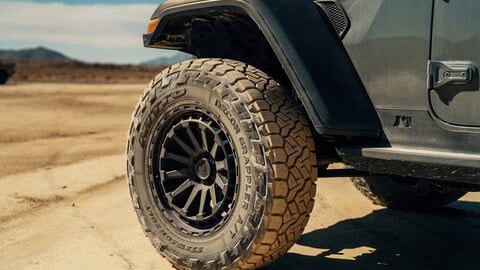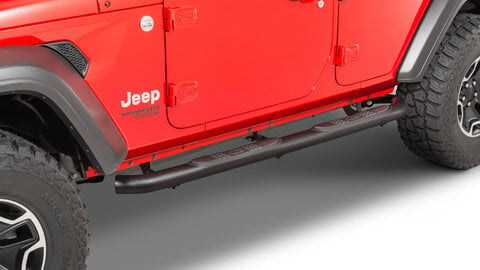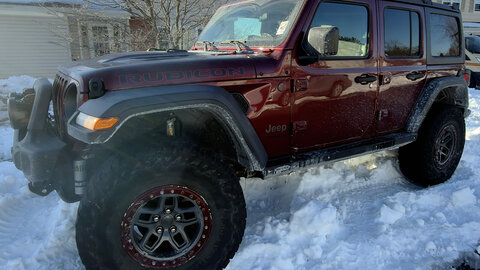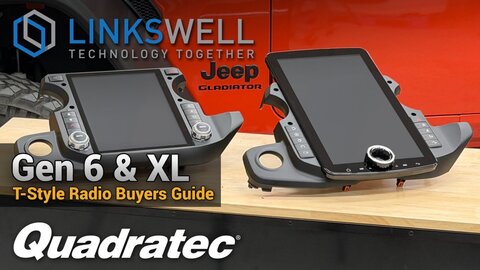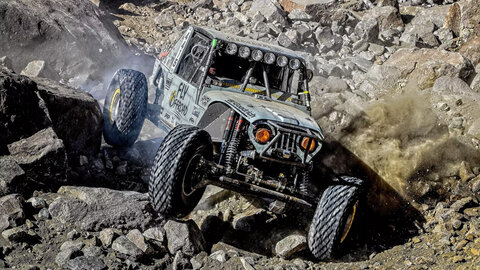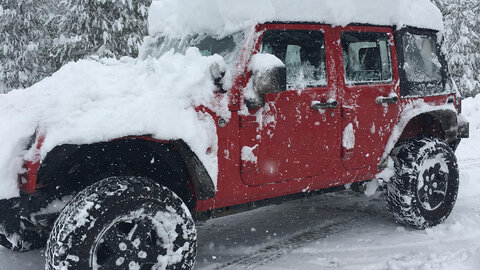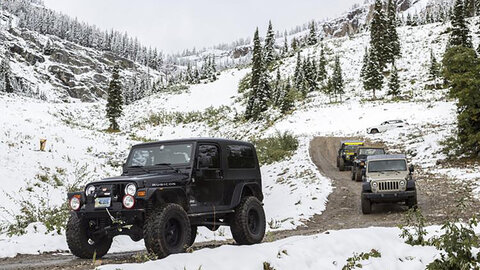by Matt Konkle
Managing Editor
This probably will not come as a shocker to you: nobody buys a Jeep because they expect marathon fuel economy.
These vehicles are built to conquer terrain, haul gear and stand up to real adventure, not to sip gas like a compact EV. But with fuel prices fluctuating and modifications piling up, even the most dedicated Jeep owner can appreciate squeezing a few extra miles out of each tank.
Whether you drive a mild-mannered JL or a lifted JK slathered with modifications like new bumpers, 35-inch mud-terrains and suspension lift, these five proven gas-saving strategies will help you get farther down the road between fill-ups. All without sacrificing any of that legendary Jeep capability.
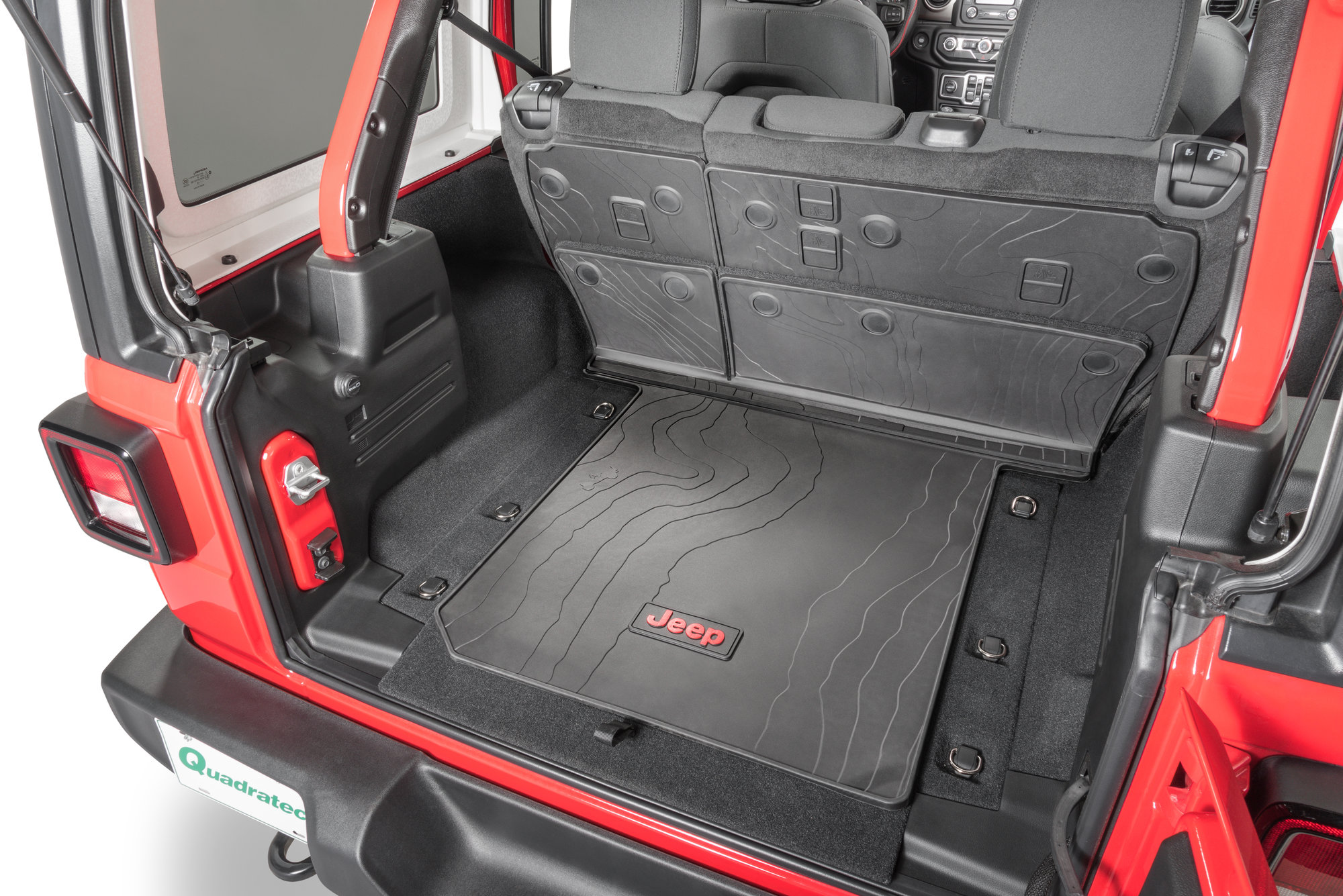
Cut Excess Weight
Every extra pound your Jeep carries forces its engine to work harder. That means more fuel used. So, remove heavy items you don’t need for daily driving or the trail run: things like bulky tool bags, old roof racks, unused recovery gear, even spare waterbags and camping equipment.
It does not even need to be Jeep-related heavy items, as golf clubs or other sports equipment can add unnecessary weight. Yard equipment or grocery items like packs of water or cans of food will as well.
It may be more convenient to have those things inside the vehicle, but your Jeep shouldn’t serve as a storage unit unless you specifically need items for an adventure. Not if you want to improve gas mileage.
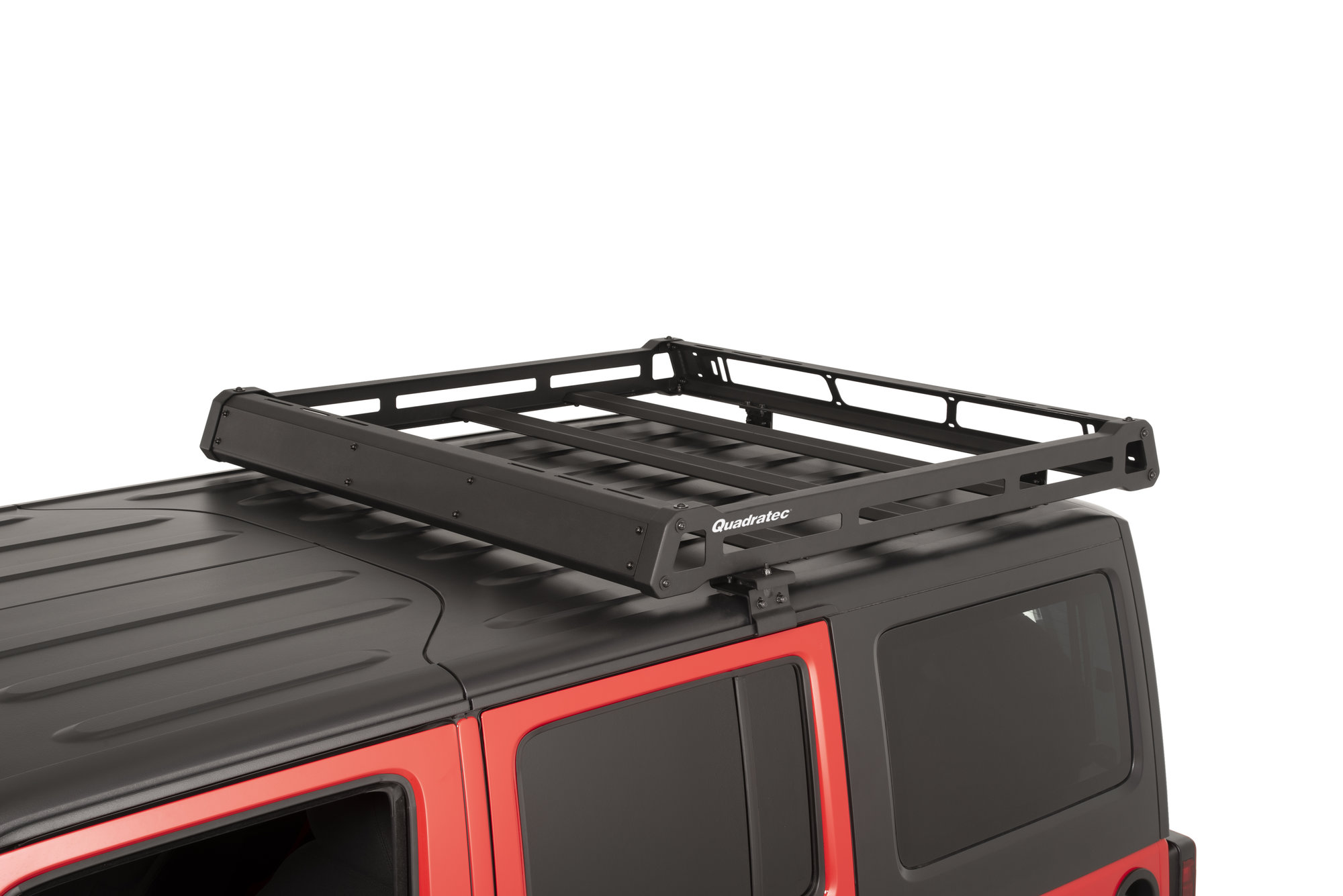
Keep Up With Regular Maintenance & Minimize Drag
A Jeep in top form uses fuel more efficiently. But neglect your vehicle, and even its meager mpg economy will suffer.
Simple things like keeping engine oil changes on schedule, swapping to a clean air filter, and keep the under-hood area clean of junk or grime means a lot over your Jeep’s lifespan.
These actions reduce internal friction and airflow restriction, both of which improve fuel economy.
On the exterior, remove unnecessary aerodynamic drag—roof racks, bulky hi-mount spare tires and oversized light bars are fun, but they also raise wind resistance and punish MPG.
Use Your Stop-Start System (And Check Idle Time)
We know, we know. The whole start-stop thing can be annoying and hard to adjust too in newer models. And the first thing most people do is disable it via some tuner, or just press the button on the center stack.
But, if your Jeep has the factory engine start-stop feature, you may want to think about trusting it. Letting the system do its job saves fuel whenever you’re waiting at lights or stalled in traffic. That man not seem like much, but it can add up over time.
Additionally, if your vehicle does not have start-stop, then turn the engine off if you’re idling for more than a minute. Idle time equals wasted gas.
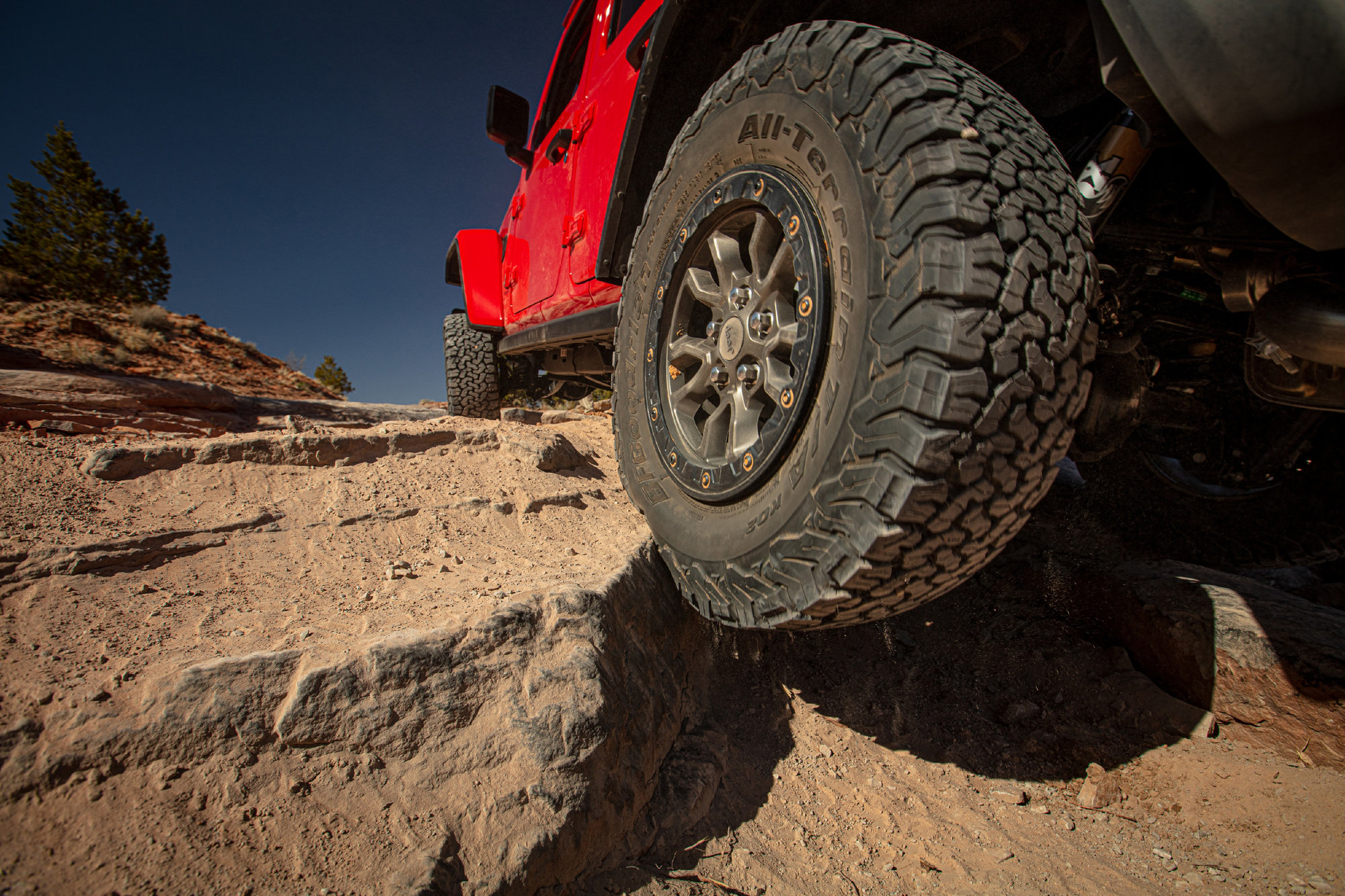
Watch Tire Pressure and Rolling Resistance
Under-inflated tires are a major silent fuel killer, especially for off-road rigs with wide all-terrains or mud terrains. See, rolling resistance skyrockets when rubber is soft or the temperature drops.
So check that tire pressure every few days (or before a long highway stretch) and re-inflate when you air-down for trails. Newer vehicles make it even easier with their tire pressure monitoring systems. Maintaining correct cold pressure means your engine doesn’t fight extra drag just to keep rolling.
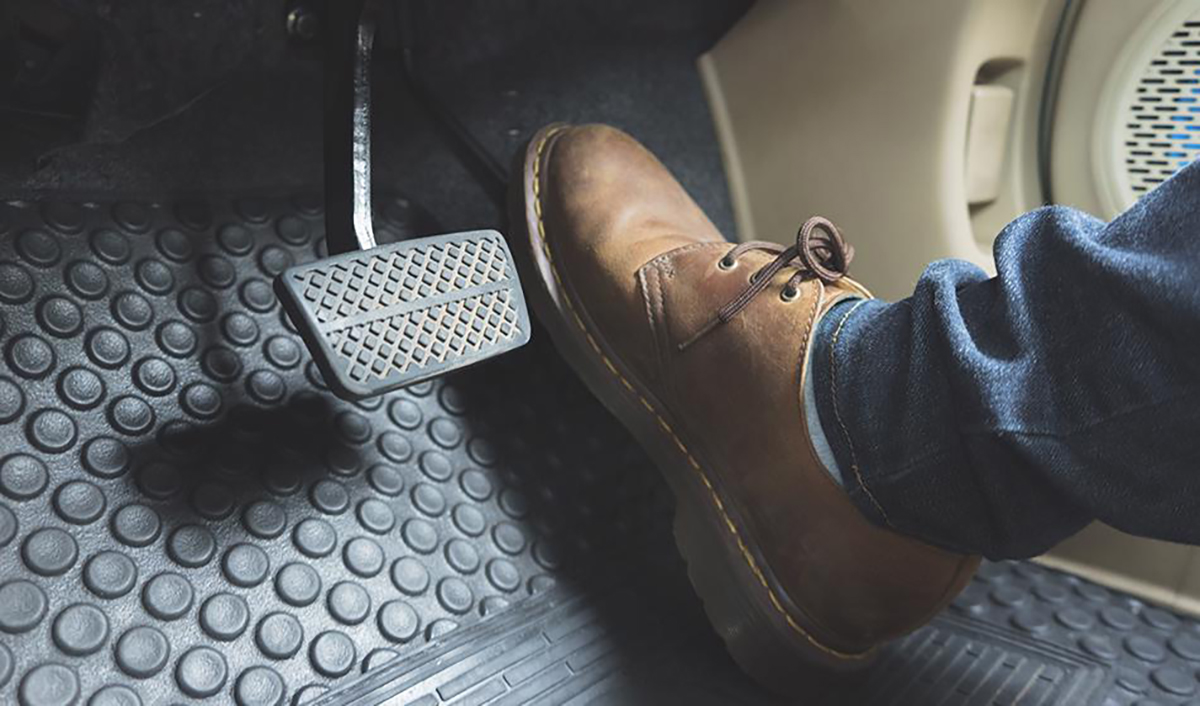
Drive Smart: Light Foot, Cruise Control & Anticipation
Your driving habits may matter to fuel economy just as much as those modifications on your vehicle.
Heavy throttle pulls, frequent or sudden lane changes and stop-and-go traffic suck fuel fast.
Instead of hammering the gas pedal at a green light or when the road ahead clears, accelerate gently. Maintain a steady speed on the highway (cruise control helps), and anticipate traffic to avoid hard stops.
These moderate habits reduce wasted energy and keep your Jeep running more efficiently.
Modded or stock, any Jeep can benefit from common sense, fuel-smart habits. All of this won’t turn your Wrangler into a Prius, but you are stretching your fuel further, leaving more room in your budget for stuff like new trail gear, tires or that next upgrade.

